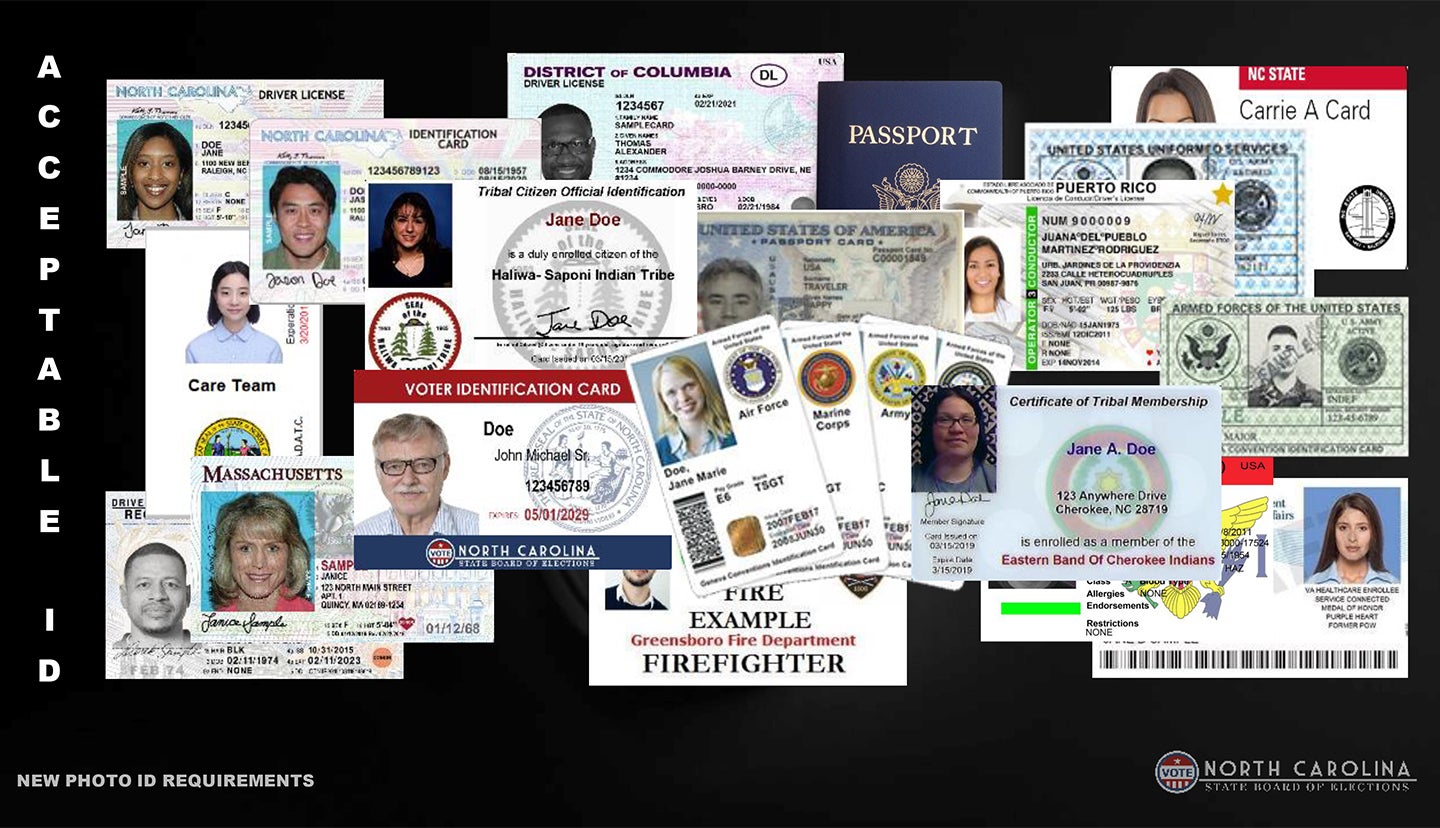NC will appeal ruling that blocked voter photo ID law
Published 11:38 am Tuesday, January 7, 2020

- Courtesy North Carolina State Board of Elections
By MARTHA WAGGONER, Associated Press
North Carolina will appeal a federal judge’s ruling that blocks the state’s photo identification voting law but not before the March 3 primary, the state Department of Justice said Thursday.
The office of Attorney General Josh Stein said in a news release that he will appeal the decision issued last Tuesday by U.S. District Court Judge Loretta Biggs. The judge ruled the ID mandate is tainted by bias that would deter black and Latino residents. The Republican leaders of the state House and Senate had asked Stein, a Democrat, to appeal.
Stein’s release said his office won’t appeal the law in time for the March 3 primary because it would cause confusion. The requirement would have been put into motion in less than two weeks for mail-in absentee voters, who also would have had to provide an ID copy.
The state DOJ won’t go to court to try to require the use of photo identification for the March 3 primary “to avoid further voter confusion in the primary election in which absentee voting begins in just 11 days and to ensure that the primary election proceeds on schedule and is administered in an orderly manner,” the release said.
The 4th U.S. Circuit Court of Appeals will review Biggs’ decision once it’s appealed, “but we anticipate that photo identification will not be required to vote in the primary,” the release said.
December 31, Biggs blocked the newest version of North Carolina’s photo ID voting law until a lawsuit filed by the state NAACP and others is resolved. Stein will ask the higher court to allow photo ID until the lawsuit is heard.
In 2013, North Carolina’s Republican-led legislature passed a photo identification voting requirement that a federal appeals court struck down in 2016. Republicans then put a question on the November 2018 ballot to enshrine voter ID in the state constitution, which passed with 55% of the vote.
Lawmakers approved a separate law in December 2018 detailing how to implement that amendment.
The 2016 ruling said photo ID and other voter restrictions were approved with intentional racial discrimination in mind, and Biggs wrote in her ruling that the newest version of the law was no different in that respect.
Legislators received a breakdown of voter behavior by race before passing the first voter identification law and used that data to target African American voters, the court wrote in striking down that law.
The same key lawmakers championed both bills, Biggs wrote. “They need not have had racial data in hand to still have it in mind,” the ruling said.
READ ABOUT MORE NEWS AND EVENTS HERE.
RECENT HEADLINES:





